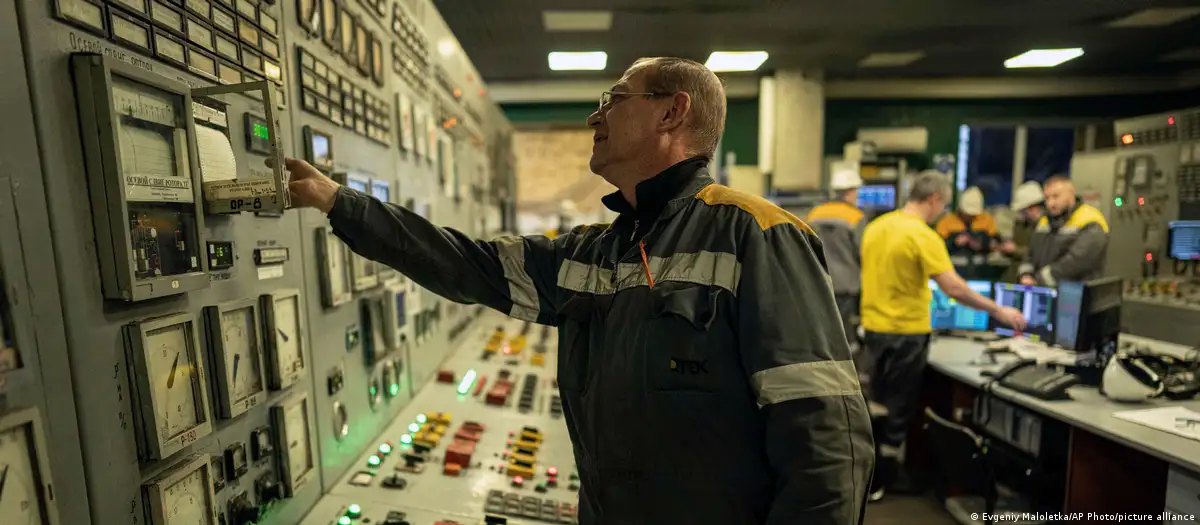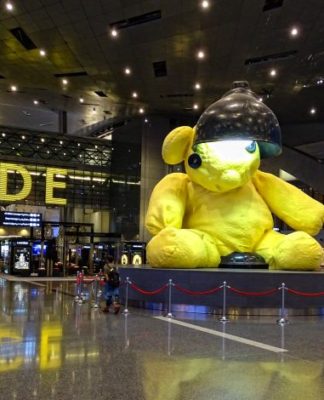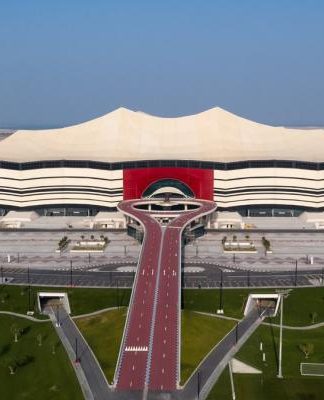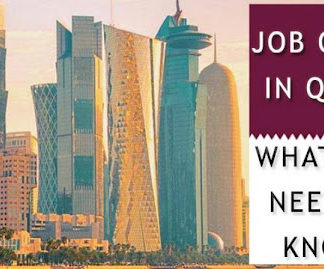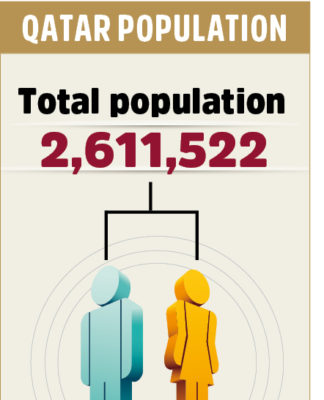CONFLICTSUKRAINE
Ukraine updates: Russia may attack power grids in winter
Published 29 minutes agoPublished 29 minutes agolast updated 6 minutes agolast updated 6 minutes ago
Russia is likely boosting production of missiles to strike Ukrainian energy infrastructure this winter, the UK Ministry of Defense said. Plus, two ships were seen headed to a Ukrainian port to collect wheat for export.
https://p.dw.com/p/4WQ9V
A worker reads the parameters in a power plant’s control room in central Ukraine
Ukrainian infrastructure could come under repeated attack, the UK Defense Ministry saidImage: Evgeniy Maloletka/AP Photo/picture alliance
Skip next section What you need to know
WHAT YOU NEED TO KNOW
Russia is likely able to “generate a significant stockpile” of air-launched cruise missiles, or ALCMs, to target Ukrainian power grids this winter, the UK Ministry of Defense said.
Russian leaders have placed an emphasis on stepping up production of the weapons, it said, in a “realistic possibility” to use them against Ukraine’s critical infrastructure in the winter.
Moscow’s forces launched hundreds of missiles against Ukraine’s power grids last winter, temporarily knocking out power and heat for millions.
Meanwhile, two cargo ships were seen headed to a Ukrainian port to collect wheat for export for the first time since the collapse of the Black Sea grain deal.
Here are the headlines concerning Russia’s war on Ukraine on Saturday, September 16:
Skip next section Poland bans entry of cars with Russian license plates
6 minutes ago6 minutes ago
Poland bans entry of cars with Russian license plates
Poland will ban the entry of passenger cars registered in Russia from Sunday, Polish state media PAP reported.
“This is a further element of sanctions imposed on Russia and its citizens in connection with the brutal war in Ukraine, due to the fact that the Russian state today constitutes a threat to international security,” Interior Minister Mariusz Kaminski said at a news conference, according to PAP.
Kyiv’s partners imposed heavy sanctions on Russia, from targeting oligarchs to banning imports of Russian oil. Kaminski said the decision was made following the release of European Commission guidelines last week on banning the entry of cars with Russian license plates in the EU.
The EU has already refused access to EU airports for Russian carriers of all kinds and banned them from flying over EU airspace.
https://p.dw.com/p/4WQM5
Copy link
Skip next section Ukrainian minister vows more drones for strikes on Russian warships
38 minutes ago38 minutes ago
Ukrainian minister vows more drones for strikes on Russian warships
Ukrainian drones will attack more Russian warships in the future, Ukrainian Digital Transformation Minister Mykhailo Fedorov told Reuters news agency.
“There will be more drones, more attacks, and fewer Russian ships. That’s for sure,” Fedorov told the news agency, answering a question about a recent attack against a Russian naval base in occupied Crimea. Ukraine said the vessels were damaged beyond repair.
In recent weeks, Ukraine has stepped up attacks on Crimea, which was illegally annexed by Russia in 2014.
In a sign of growing confidence, Ukraine has recently claimed responsibility for attacks on Crimea, having previously not directly confirmed involvement in blasts at military targets there.
Russia has acknowledged a Ukrainian missile attack damaged a warship and a submarine this week but says it has repelled all sea drone attacks.
Black Sea naval escalation evident: Analyst Frank Ledwidge
03:48
https://p.dw.com/p/4WQJZ
Copy link
Skip next section Ships head to Ukrainian port for the first time since collapse of grain deal
41 minutes ago41 minutes ago
Ships head to Ukrainian port for the first time since collapse of grain deal
Two cargo ships were headed to a Ukrainian port to collect wheat that would ultimately be shipped to African and Asian countries, a senior government Ukrainian official has said.
The ships would be the first to use a key temporary shipping corridor in the Black Sea following the Russian withdrawal from the Black Sea grain deal. That deal allowed for the safe movement of grains from Ukrainian ports to the rest of the world amid the war.
Ukraine last month said it was setting up “humanitarian corridors” so ships could leave its ports to carry goods to the rest of the world once again.
Five vessels have so far left the port of Odesa using the corridors set up after the collapse of the primary deal in July.
Resilient Africa and Aroyat were the two cargo vessels to approach a Ukrainian port for the first time since July, shipping data showed on Saturday morning.
The Black Sea Grain Initiative was brokered last year by Turkey and the United States. The deal was renewed three times before Russia exited the deal, saying the deal was hampering the export of its own products.
Ramaphosa: ‘The Black Sea should be open’
00:32
https://p.dw.com/p/4WQGc
Copy link
Skip next section Russia likely boosting missile capacity to target Ukraine power grids
45 minutes ago45 minutes ago
Russia likely boosting missile capacity to target Ukraine power grids
There is a “realistic possibility” that Russia will launch missile strikes against Ukrainian energy infrastructure this winter as it did last year, the UK Ministry of Defense said in its daily briefing.
“Between October 2022 and March 2023, Russia focused long-range strikes against Ukraine’s national energy infrastructure,” the Defense Ministry said in the statement posted to X, formerly known as Twitter.
According to open source reports, the UK ministry said, Russian leaders have again emphasized efforts to step up the pace of production of air-launched cruise missiles (ALCMs).
The expenditure rates on the weapons have fallen since April 2023 in the country, the ministry said. That means Russia is “likely able to generate a significant stockpile” of air-launched cruise missiles to attack Ukraine this winter, it said.
Russian forces launched hundreds of missiles and drones at Ukraine’s energy infrastructure last winter, temporarily cutting off electricity, water and heat to millions.
The Human Rights Watch said last year the Russian tacticto repeatedly target Ukraine energy infrastructure appeared primarily designed to instill terror among the population in violation of the laws of war.
rm/sms (Reuters, AP, AFP, dpa)
https://p.dw.com/p/4WQDe
Copy link














